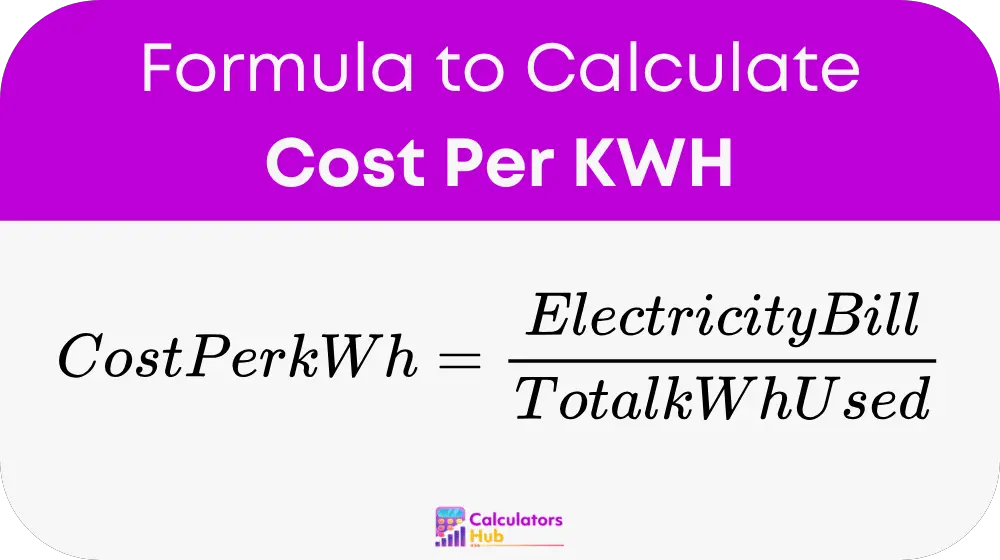The Cost Per kWh Calculator helps users determine how much they pay for each kilowatt-hour (kWh) of electricity they consume. This tool is essential for homeowners, businesses, and industries that need to monitor energy costs, compare different electricity providers, or optimize power usage.
By using this calculator, users can get a clear understanding of their electricity expenses, making it easier to budget and find ways to reduce costs. It is especially useful for those looking to switch to energy-efficient appliances or renewable energy sources.
Formula of Cost Per KWH Calculator
The formula to calculate the cost per kilowatt-hour (kWh) is:

where:
- Total Cost is the amount charged for electricity usage, as stated in the electricity bill.
- Total kWh Used is the total energy consumption in kilowatt-hours (kWh), typically mentioned on the bill.
By using this simple formula, individuals and businesses can accurately calculate their electricity cost per unit.
General Cost Per kWh Table
The table below provides an estimated cost per kWh based on common electricity bill amounts and energy usage. This helps users quickly reference their electricity rates without manual calculations.
| Electricity Bill ($) | kWh Used | Cost Per kWh ($) |
|---|---|---|
| 50 | 400 | 0.125 |
| 75 | 500 | 0.15 |
| 100 | 600 | 0.1667 |
| 150 | 800 | 0.1875 |
| 200 | 1000 | 0.20 |
This table is useful for estimating electricity costs and comparing rates between different providers.
Example of Cost Per KWH Calculator
Suppose a household receives an electricity bill of $120 and has used 750 kWh in a month. The cost per kWh can be calculated as follows:
Cost Per kWh = (Electricity Bill) / (Total kWh Used)
= 120 / 750
= $0.16 per kWh
This means that for every kilowatt-hour of electricity consumed, the user is paying $0.16.
Most Common FAQs
You can lower your cost per kWh by using energy-efficient appliances, reducing power consumption during peak hours, and switching to a provider with lower rates.
The cost per kWh can change due to fluctuating electricity rates, seasonal variations in energy use, and changes in utility company pricing structures.
Yes, you can apply the same formula to solar power by dividing the installation and maintenance costs by the total kWh generated over time.